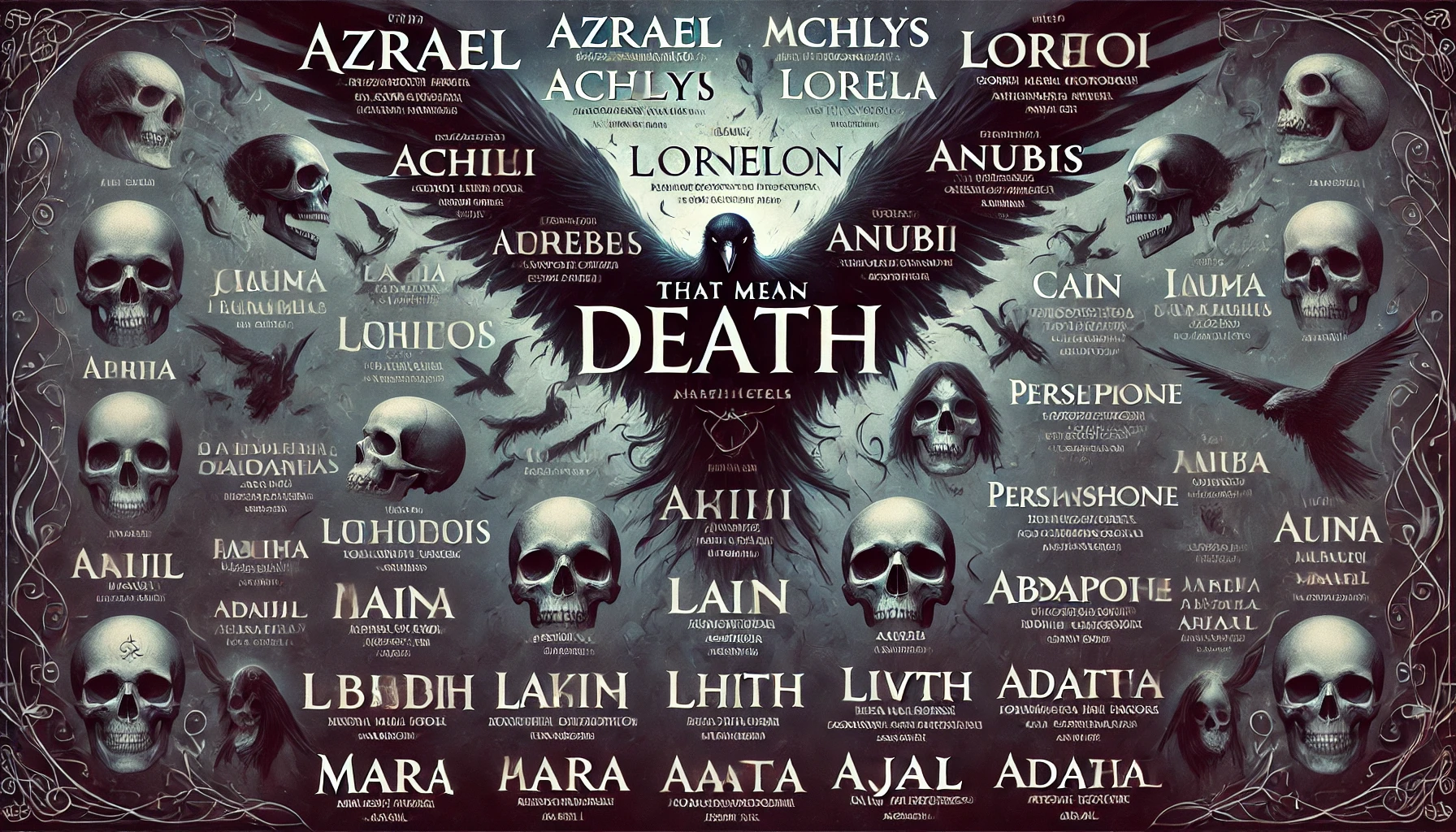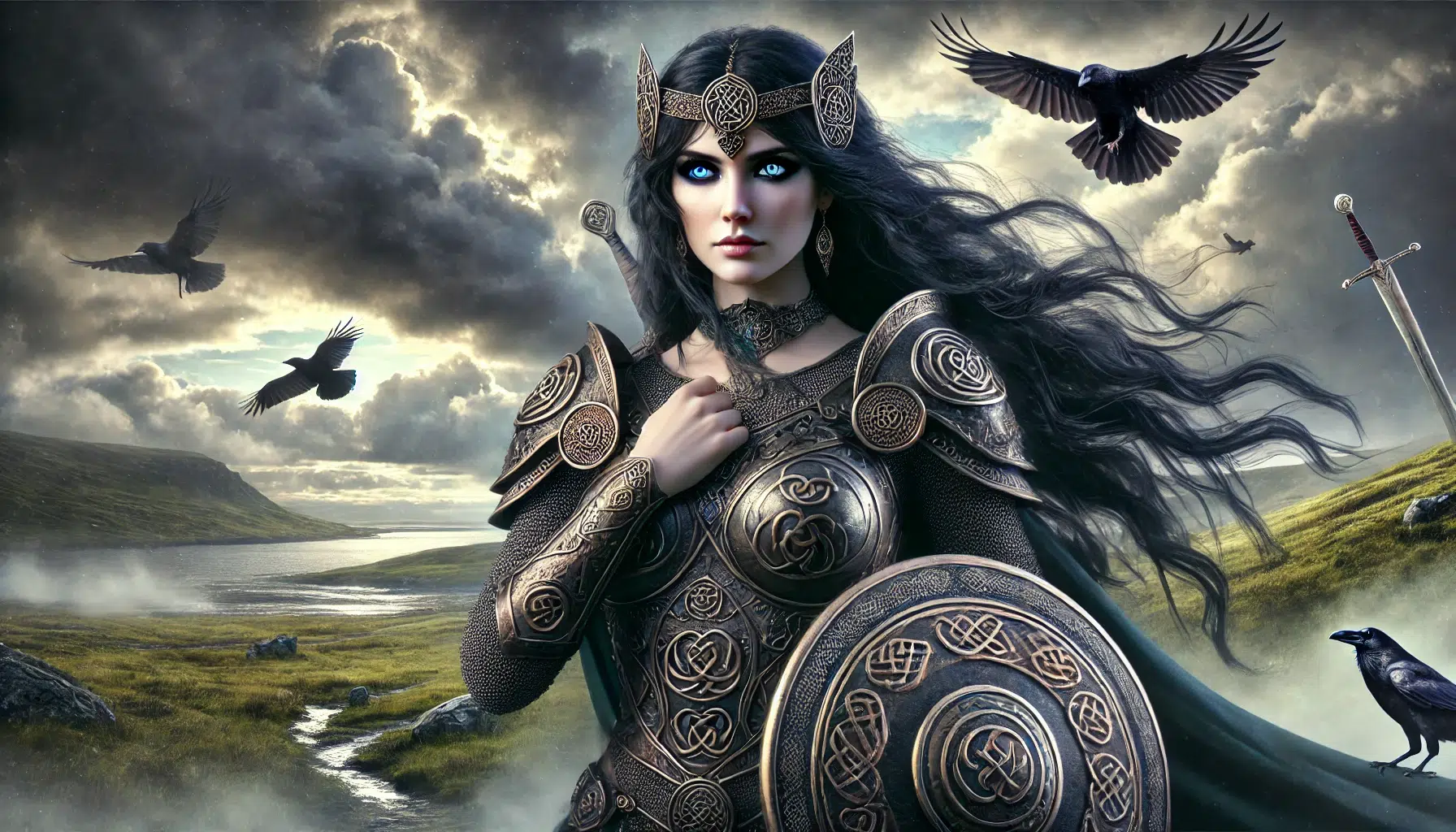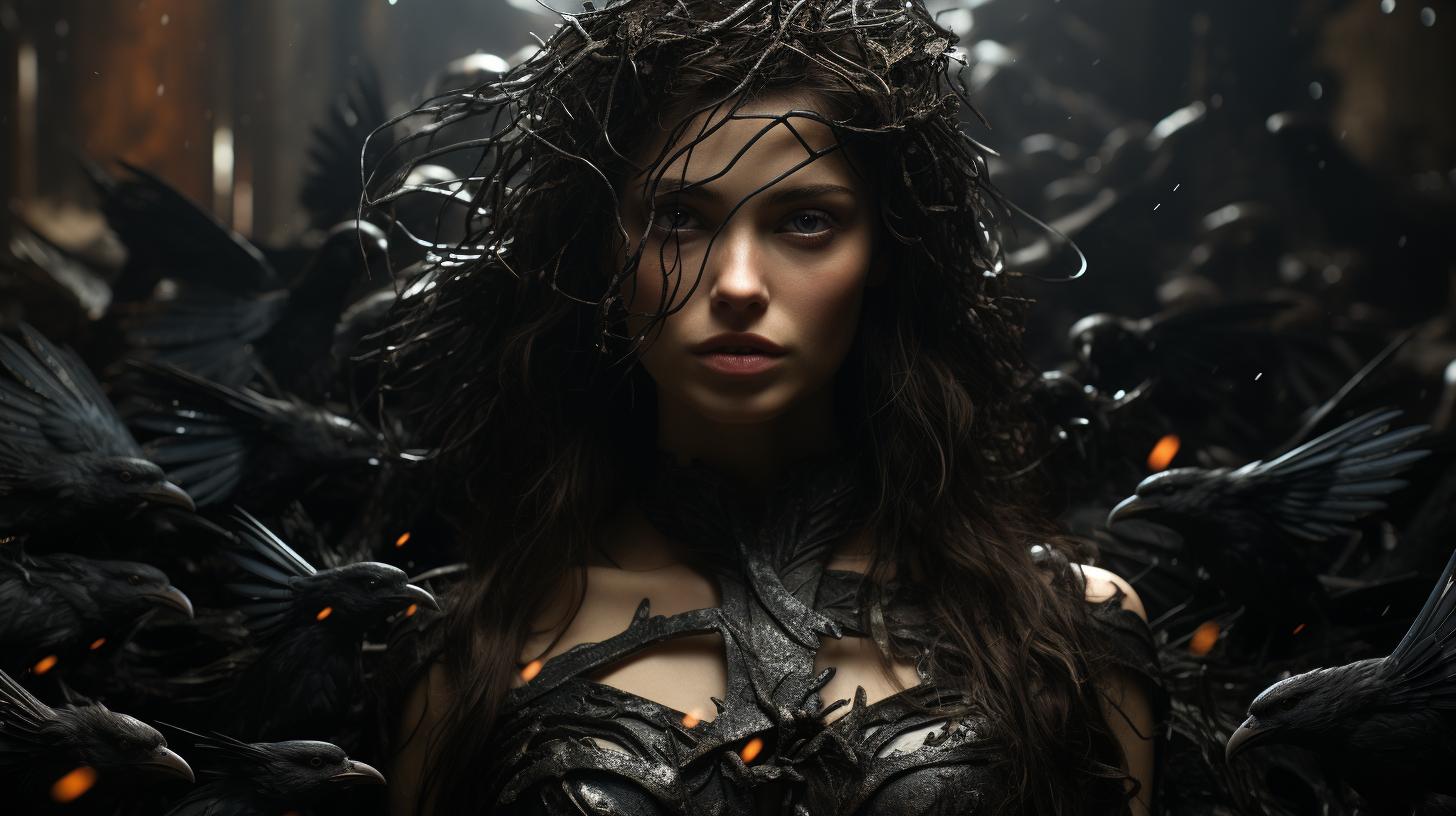15 Powerful Names That Mean Death and Their Mythological Origins

Introduction
Names that mean death have long held deep significance across cultures and mythologies. These names are often associated with deities, spirits, and entities that embody the transition between life and death. From ancient gods to spectral figures, names that signify death evoke powerful images of the inevitable end of life. In this article, we explore 15 such names that represent death, examining their mythological origins and the roles they play in their respective traditions.
1. Azrael: The Angel of Death
Azrael is one of the most prominent names that mean death, known as the Angel of Death in Islamic and Judaic traditions. In Islamic culture, Azrael is responsible for taking the souls of the deceased to the afterlife. His role as the peaceful harbinger of death is crucial in the transition from life to the spiritual world. The name Azrael means “Whom God helps,” signifying that death, though inevitable, is a divine act of transition rather than an end. This celestial being’s presence in many religious texts reminds us of the omnipresence of death and the role angels play in its execution.
2. Achlys: The Personification of Misery and Death
Achlys is another example of names that mean death in Greek mythology. Known as the goddess of death and the precursor to it, Achlys embodies the sorrow and despair that often precede the finality of death. Her name, which translates to “Mist of Death,” reflects the ethereal and unavoidable nature of the end of life. Achlys signifies the emotional death that comes before the physical one, representing the sadness that envelops individuals as they approach their inevitable end.
3. Morrigan: The Goddess of War and Death

In Irish mythology, Morrigan is a name closely tied to death. As a goddess of war and fate, Morrigan often appears on battlefields, signaling the impending death of warriors. She is known for her ability to shape-shift, often appearing as a raven or crow, which are symbols of death. Morrigan’s name means “Great Queen” or “Phantom Queen,” linking her to the haunting and fatal aspect of warfare. Names that mean death, like Morrigan, highlight the connection between war, fate, and the inevitability of death.
4. Lorelei: The Enchantress of Death
Names that mean death are not always associated with violent or destructive forces. Lorelei, a name from Germanic folklore, represents death through seduction. Lorelei is a siren-like figure who lures sailors to their deaths with her enchanting song. Her name is often interpreted as “Alluring” or “Murmuring Rock,” suggesting that death can come in the form of temptation. Lorelei embodies the concept of how death can be as alluring and inevitable as a siren’s call, drawing individuals toward their demise with irresistible charm.
5. Morana: The Slavic Goddess of Winter and Death
In Slavic mythology, Morana is a goddess whose name means “Death” and “Winter.” She represents the cold, harsh forces that bring about the end of life in nature. Morana’s arrival signals the death of the year as winter takes hold, marking a time of death in the natural cycle. However, her influence also signifies the promise of renewal, as the end of one season leads to the beginning of another. This cyclical nature of life and death is a key element in many names that mean death, including Morana’s, who reminds us of both endings and new beginnings.
6. Abiba: The Goddess of Death and Rebirth

In African cultures, Abiba is a name associated with both death and the spiritual journey beyond. Names that mean death, like Abiba, often symbolize the transition from life to the afterlife. In this case, Abiba is regarded as a guide for souls making the journey after death. Her name, meaning “The One Who Leads Souls,” suggests a compassionate and guiding presence that helps ease the soul’s passage from life to death, as well as representing the potential for rebirth in another realm or form.
7. Archemoros: The Greek Personification of Death
Archemoros is a lesser-known figure in Greek mythology but is significant as a personification of the beginning of death. His name means “The Beginning of Death,” signifying the moment when the inevitable approach of death begins. Unlike Thanatos, who represents the end of life, Archemoros is associated with the gradual onset of mortality. His name connects him to the idea that death is not an event but a process that begins with birth and continues throughout life. Names that mean death, like Archemoros, show us that death is not just a singular event but a continuous force.
8. Thanatos: The Greek God of Death
Thanatos is one of the most well-known names that mean death, representing the peaceful death that comes naturally without violence. In Greek mythology, Thanatos is often depicted as a serene figure, contrasting with other gods associated with war and destruction. His role as the personification of death speaks to the inevitability and natural aspect of mortality. The name Thanatos is synonymous with the peaceful transition from life to death, offering a sense of calm amid the storm of existence.
9. Ajooni: The Immortal Death in Hinduism
Ajooni is a name used in Hinduism to refer to the divine nature of death and immortality. The name signifies a being that is neither born nor dies, highlighting the belief in the eternal cycle of life, death, and rebirth. While names that mean death often signify the end of physical existence, Ajooni suggests that death is not an absolute end but part of a cyclical process. This name, deeply tied to Hindu philosophy, emphasizes that death is a transition, not a termination, of life, illustrating the enduring soul’s journey beyond mortal constraints.
10. Ankou: The Breton Personification of Death
In Breton folklore, Ankou is a spectral figure associated with the collection of souls after death. His name is commonly linked to death, as Ankou is seen as the one who guides souls to the afterlife. He is often depicted as a tall, skeletal figure driving a cart, collecting the souls of the deceased. Names that mean death, like Ankou, reflect the folk belief that death is not an end but a journey. The figure of Ankou signifies that death is a guide, leading souls to the next stage of existence.
11. Anubis: The Egyptian God of Death and the Afterlife
Anubis, a central figure in ancient Egyptian mythology, is one of the most iconic names that mean death. Known as the god of mummification and the protector of the dead, Anubis is responsible for guiding the souls of the deceased to the afterlife. His name is synonymous with death and rebirth, as he ensures that the body is properly prepared for the journey beyond. Depicted with a jackal’s head, Anubis embodies the Egyptian reverence for death and the afterlife, showing that death is a sacred passage rather than an end.
12. Athanasius: The Immortal One
While not directly a god of death, the name Athanasius is often associated with the concept of immortality, which contrasts with death. The name, meaning “immortal,” can be interpreted as a defiance of death, symbolizing life beyond mortality. Names that mean death, like Athanasius, suggest that while physical death is inevitable, the soul can transcend this limitation. This name represents the idea that death is not the final destination, but a transition into eternity.
13. Bacia: The Name of Death in Ancient Cultures

Bacia is a name rooted in African traditions, often associated with the spiritual guidance of souls after death. The name signifies both the death of the physical body and the journey of the soul to the afterlife. Names that mean death, such as Bacia, are crucial in many cultures where the afterlife is seen as a continuation of existence beyond death. Bacia represents the connection between the physical and spiritual realms, guiding souls from one state to the next.
14. Cain: The Biblical Killer
Cain, the first murderer in the Bible, is a name that carries heavy associations with death. His act of killing his brother Abel marks the first instance of murder and death in the biblical narrative. The name Cain has become synonymous with death, violence, and guilt. Names that mean death, like Cain, remind us of the darker aspects of human nature and the moral consequences of taking life. The weight of Cain’s name endures as a symbol of the consequences that come with death caused by human hands.
15. Chiwa: The Goddess of Death in Japanese Mythology
In Japanese mythology, Chiwa is a goddess associated with death and the spiritual realm. The name Chiwa means “death” and signifies her role as the guardian of souls who have passed from the mortal world. Names that mean death, like Chiwa, are important in many cultural traditions that view death not as an end but as a transition to another form of existence. Chiwa represents both the peaceful and the fearsome aspects of death in Japanese belief.
Conclusion
In exploring names that mean death, we uncover a rich tapestry of mythological and cultural representations of mortality. These names transcend simple associations with death, often reflecting deeper beliefs about the afterlife, immortality, and the cyclical nature of existence. Whether through gods like Thanatos and Anubis or spectral figures like Lorelei and Ankou, these names remind us of the inevitability of death and the various ways in which different cultures have come to understand and symbolize it. As we reflect on these names, we are reminded that death is not an end, but a part of a much larger and ongoing journey.
